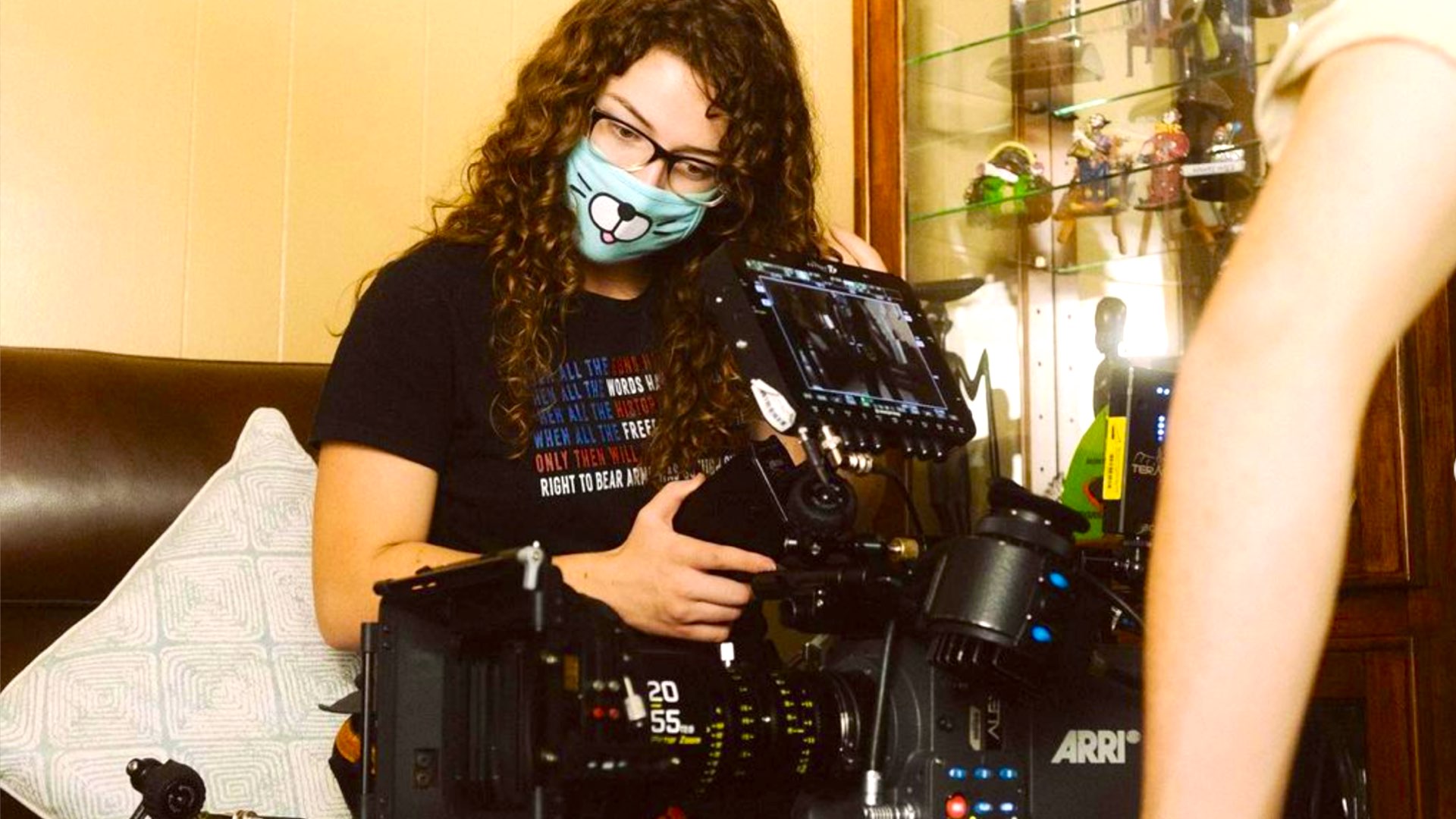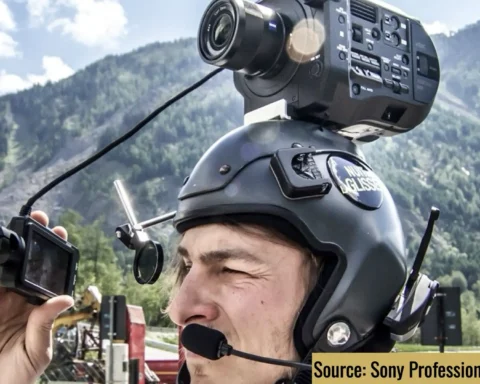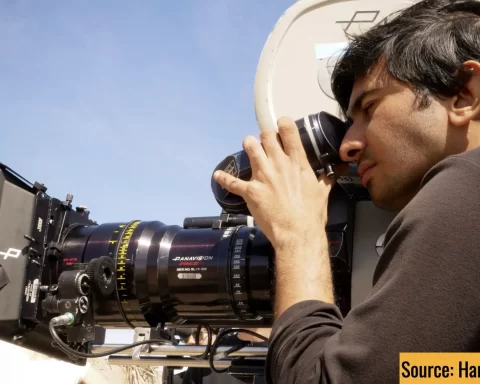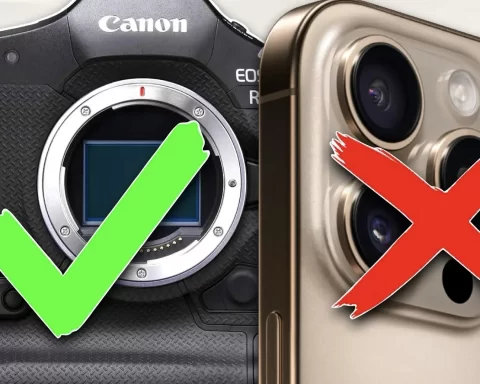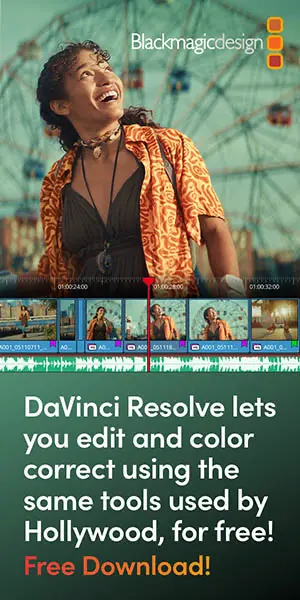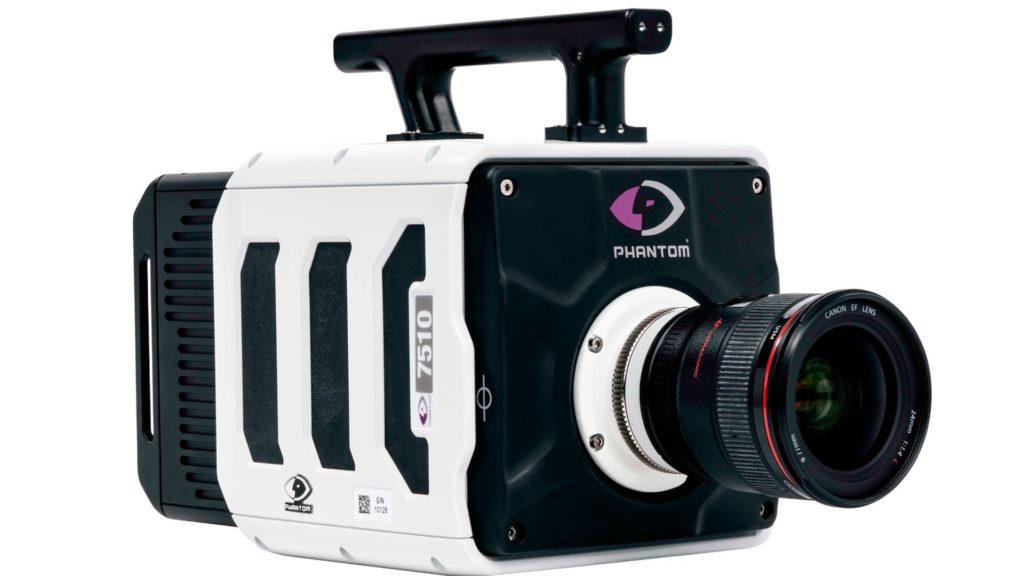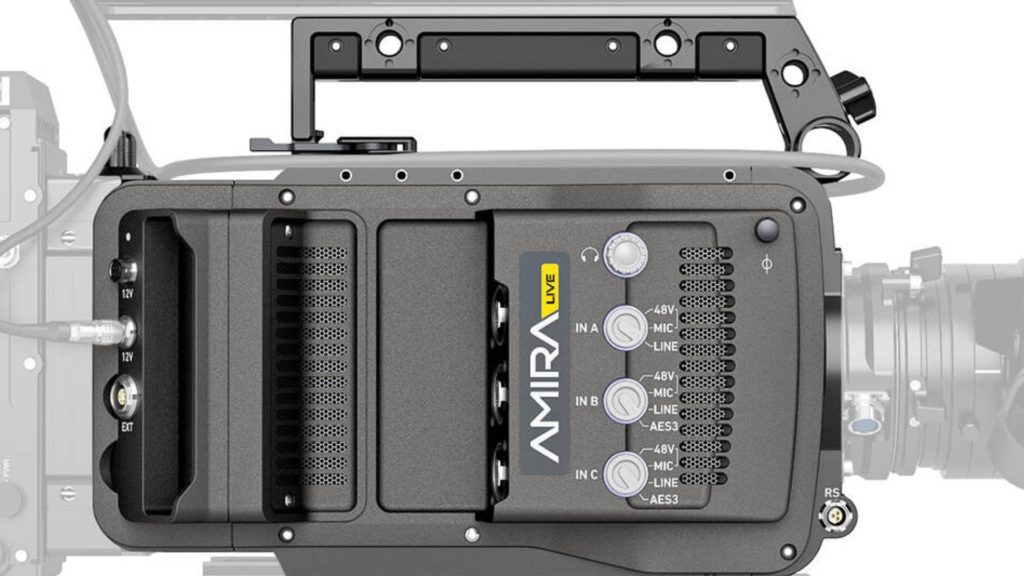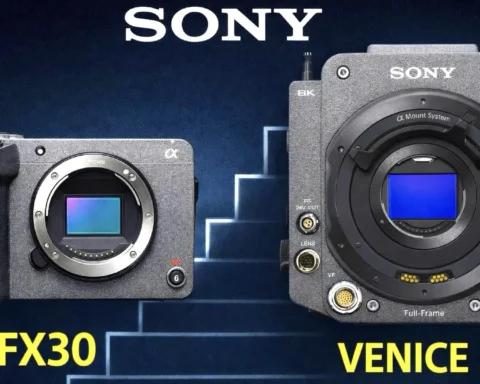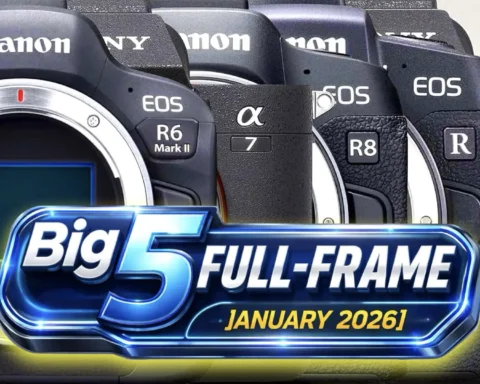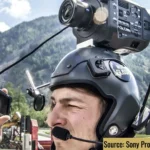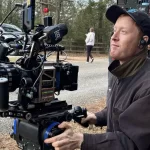As part of our series, Women’s Cinema, we interviewed 1st AC Rebecca Baliko. In this episode, Rebecca tells us what made her choosing filmmaking as a career (following her father’s footsteps), the beauty of teamwork on movie sets, and why honesty and humor are key factors to success in our industry.
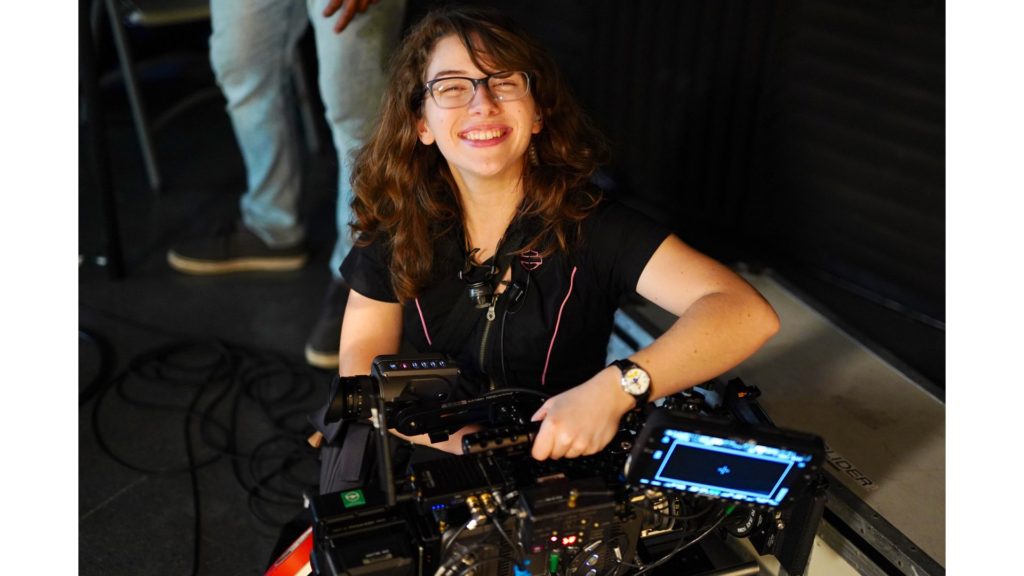
Women’s Cinema by Y.M.Cinema Magazine
Women’s Cinema is a new series by Y.M.Cinema Magazine with the goal of encouraging women to pursue after filmmaking career and to provide a stage for female content creators in the filmmaking industry, regardless of their role on set. Read here Part 1, Part 2, and Part 3.
This time, we interviewed 1st AC Rebecca Baliko. Rebecca has vast experience with indie projects and documentaries, as well as high-end productions. Rebecca loves the intensive rhythm, teamwork, and the “chaotic order” of staged productions, and she truly believes that the shared passion for filmmaking brings people together, regardless of differences. Read the interview below.
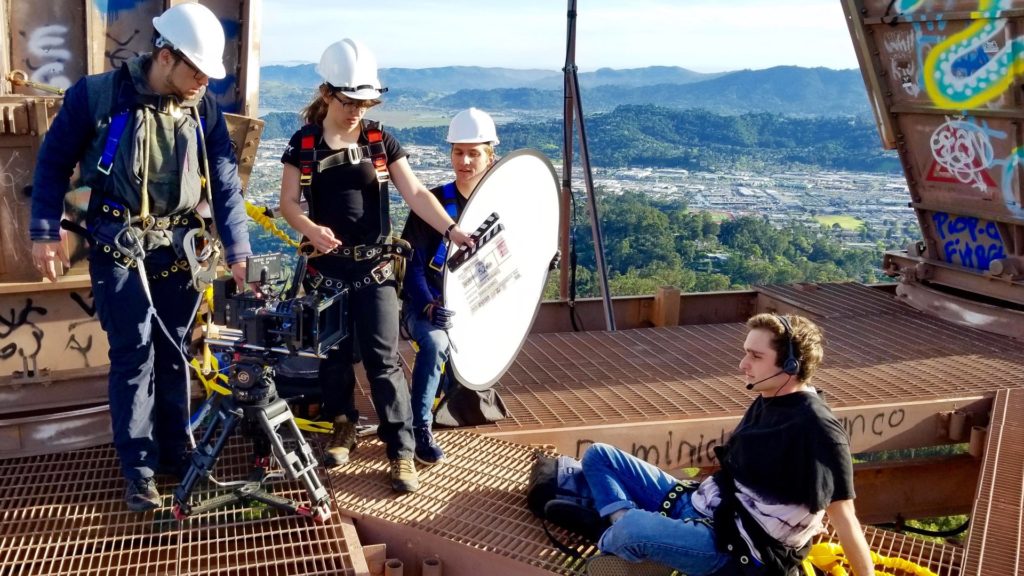
Although I was initially pursuing cinematography, I realized after a year that I was much more passionate about First Assistant Camera work.
Following father’s footsteps
Y.M.Cinema Magazine: Please tell about yourself (short bio focusing on your filmmaking career), and why (and how) did you choose filmmaking as a profession/ career.
Rebecca Baliko: I was introduced to cameras at a young age by my father, who is a professional wildlife and nature photographer (Bela Baliko). Since I was already passionate about storytelling through films, it was an easy conclusion to pursue a career in film in California. I studied Film Production at Biola University’s School of Cinema and Media Arts and began working on numerous productions while I was still a student to gain more hands-on experience (including acclaimed shorts like “Silly Human,” “Candyman,” and several indie feature-films).
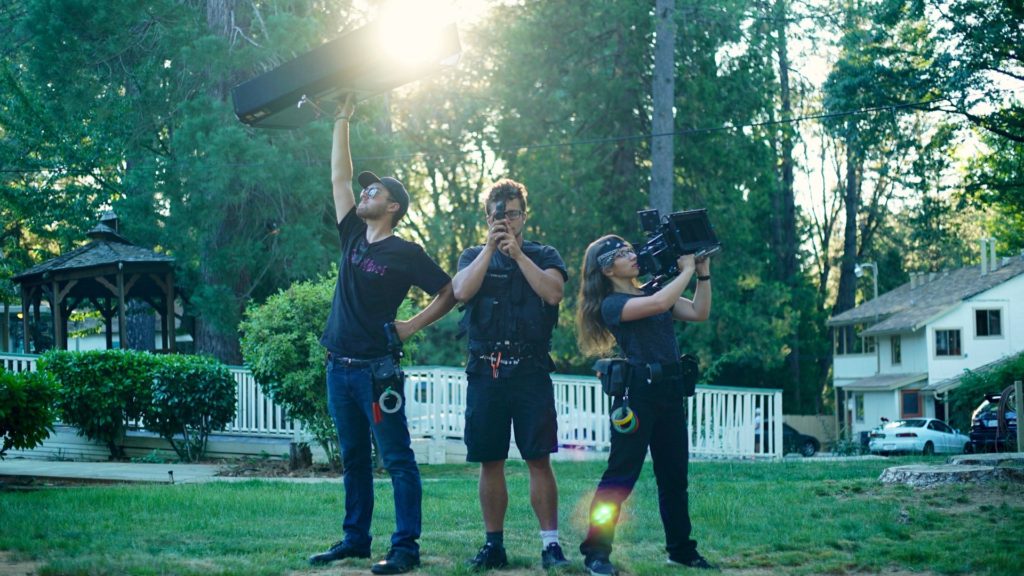
While I do love the uncertainty of documentary filmmaking (you never know exactly what’s going to happen – and you normally only have one take to get it), I also love the rhythm of staged productions.
Cinematographer vs. 1st AC
Y.M.Cinema Magazine: Please describe your roles on a set. Do you have any preferred roles?
Rebecca Baliko: Although I was initially pursuing cinematography, I realized after a year that I was much more passionate about First Assistant Camerawork. Shortly after filming “Rubaru” in 2018, I specialized in 1st AC work and haven’t really looked back since then. I also do camera operating for smaller shoots, like documentaries.
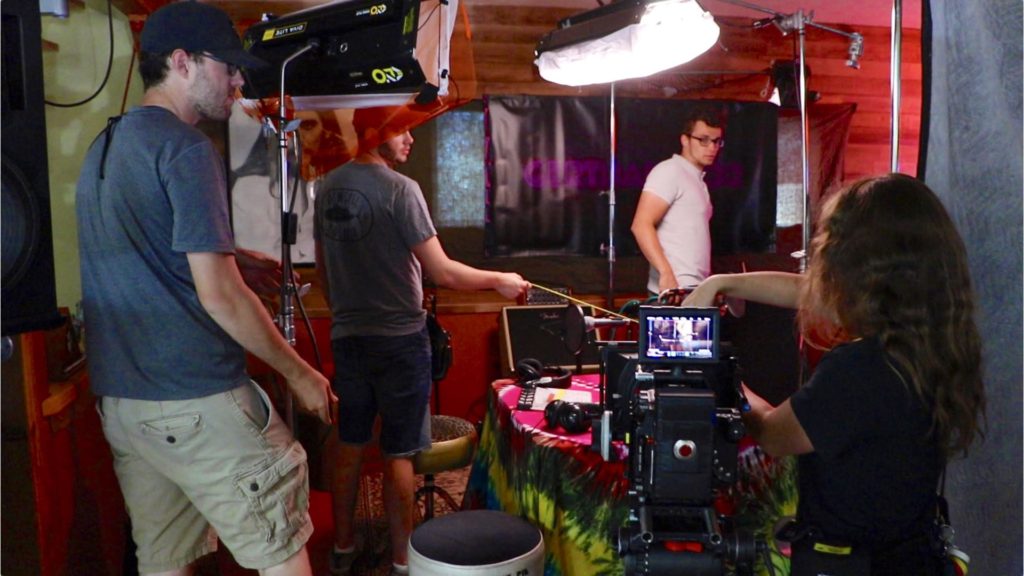
There’s this sort of chaotic order to everything happening on set since every department operates independently, but it all still ends up working together into a more-or-less organized dance.
The chaotic order of movie sets
Y.M.Cinema Magazine: Elaborate on the challenges and differences regarding documentary filmmaking vs. 1st AC/ camera operator as a part of a set. What’s more satisfying: creating your indie film from scratch, or being a part of a big production?
Rebecca Baliko: Each scenario has its own set of challenges and pros and cons. While I do love the uncertainty of documentary filmmaking (you never know exactly what’s going to happen – and you normally only have one take to get it), I also love the rhythm of staged productions. There’s this sort of chaotic order to everything happening on set, since every department operates independently, but it all still ends up working together into a more-or-less organized dance. I always find the overlap between departments the most entertaining (especially the interactions between the camera team and G&E).
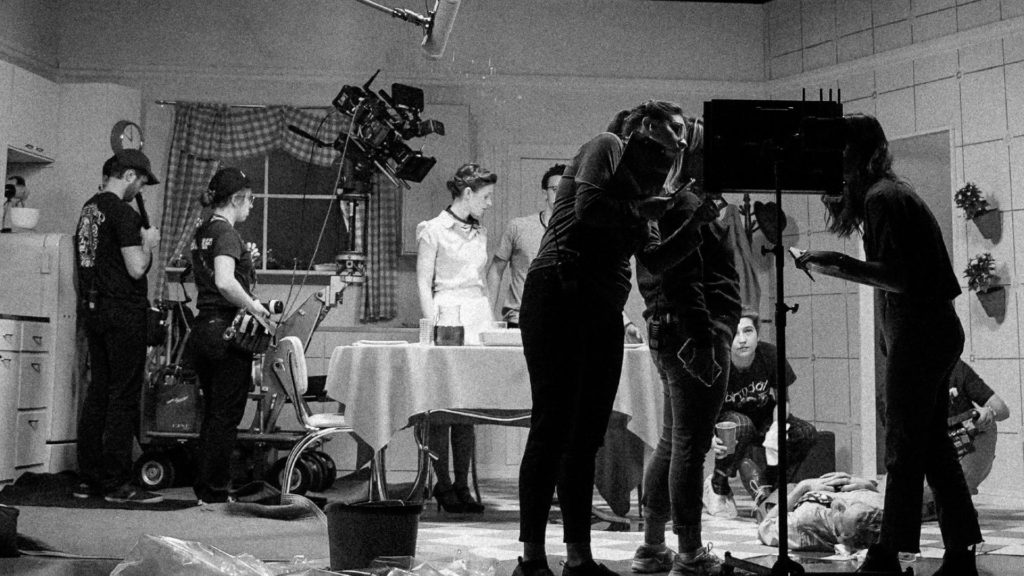
You’re always meeting new people on set, and the first day can be a bit rough with just getting to know everyone; but the shared passion for filmmaking and the shared experiences on set tends to bring people together.
The Glass ceiling
Y.M.Cinema Magazine: What’s it like to work in a professional environment dominated by men? As the majority of the filmmaking industry are men, do you feel that you have a glass ceiling above you?
Rebecca Baliko: I think from the outside, it seems really intimidating; but once you start getting connected in the industry, you tend to find people care more about your abilities and who you are as a person over anything else. You’re always meeting new people on set, and the first day can be a bit rough with just getting to know everyone; but the shared passion for filmmaking and the shared experiences on set tends to bring people together, regardless of differences. If you’re friendly and have a good work ethic, you’ll get invited back onto most sets. Most of the guys I have worked with have been awesome, and I have very few complaints about our experiences together on set.
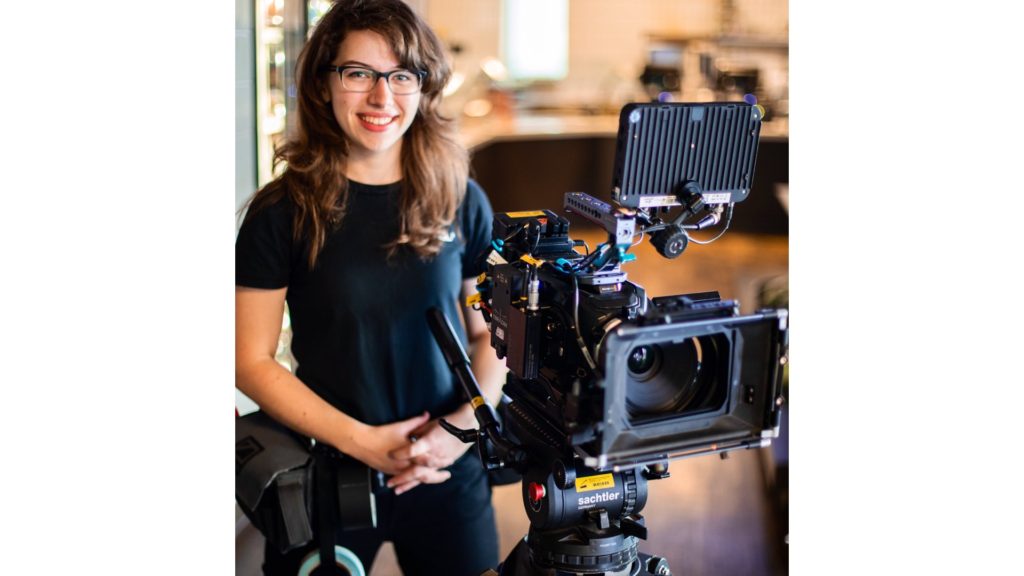
There is a sort of close kinship that forms between crew members that tend to surpass most differences.
Women in the filmmaking industry
Y.M.Cinema Magazine: Do you feel that you have to try harder as a female filmmaker in order to make a climb in the industry?
Rebecca Baliko: It’s hard to say. I worked in a very male-dominated industry (as a chef de partie) before I pursued filmmaking, so I was already accustomed to being the only woman in a workplace. I’ve found that in these kinds of environments, it actually has the positive effect of female ACs, operators, and DPs naturally gravitating towards each other, since we know what it’s like to be the minority on set. So, I constantly feel encouraged and championed not only by other women in the film industry, but also by most of the men I have worked with onset. There is a sort of close kinship that forms between crew members that tends to surpass most differences.
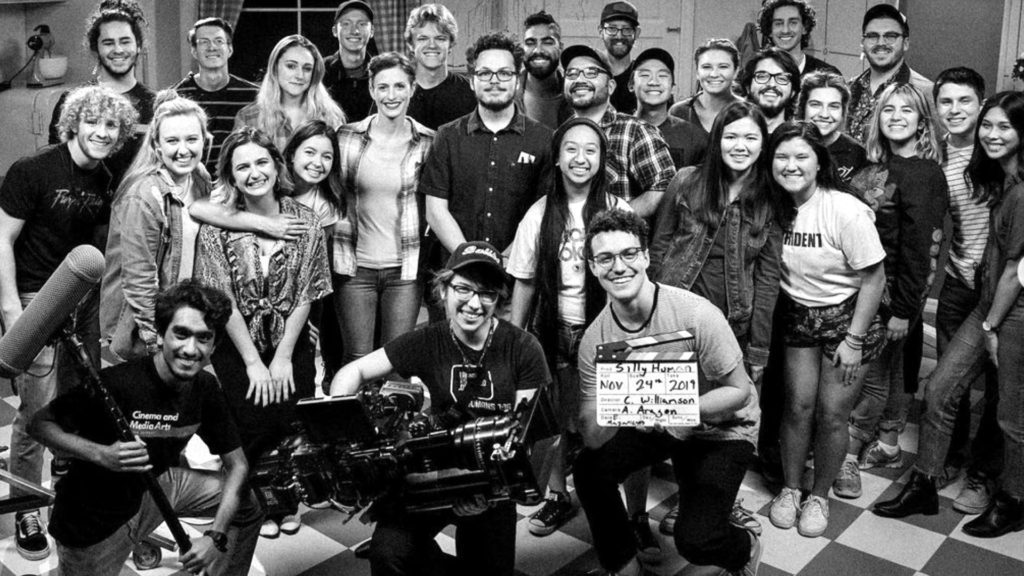
I would say the biggest advice I could give to anyone starting out is to try not to take anything personally; just do your best, and be honest if you don’t know something. Kindness goes a long way. So does humor.
Final thoughts
Y.M.Cinema Magazine: Do you recommend other women to pursue a filmmaking career? If so, what’re your tips and tricks to do so.
Rebecca Baliko: There has been a surge of support for female filmmakers in Hollywood these past few years, so I actually feel like now is the best time for women to get involved in the film. If you’re not in LA yet, get plugged in and try to connect with other filmmakers through social media; especially other ladies in the industry. I would say the biggest advice I could give to anyone starting out is to try not to take anything personally; just do your best, and be honest if you don’t know something. Most people would prefer a teachable person over someone who pretends to know everything, but then ends up messing something up (and potentially causing a safety hazard). A lot of people may seem cold at first, but they’ll warm up to you once they get to know you. Kindness goes a long way. So does humor.

